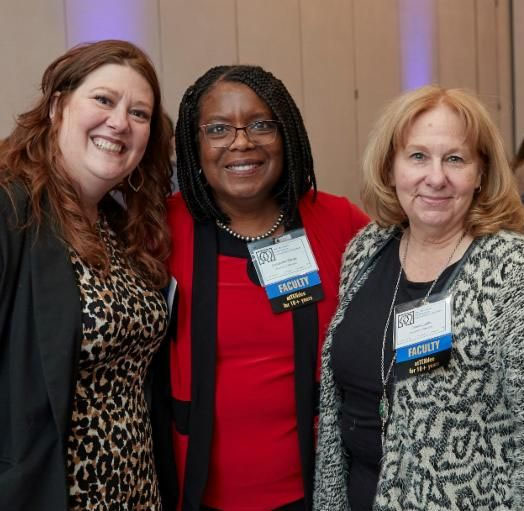School of Communication Sciences and Disorders
MSHC Audiology Adapts in the Midst of COVID-19
by Frances Breland
The COVID 19 pandemic brought operations and activities on the UofM campus to a near halt right after Spring Break this semester. With the news that all classes at the School were moving online and onsite operations were restricted to essential services at the Memphis Speech and Hearing Center (MSHC), Dr. Jennifer Taylor and the audiology clinical faculty quickly adapted the clinic operations and clinic classes to protect the health and safety of patients and students alike.
 Their task was not easy since, as Dr. Taylor pointed out, audiology is primarily a
hands-on field. Many of the regular audiology clinic appointments, including vestibular
testing and hearing screenings, cannot be completed remotely.
Their task was not easy since, as Dr. Taylor pointed out, audiology is primarily a
hands-on field. Many of the regular audiology clinic appointments, including vestibular
testing and hearing screenings, cannot be completed remotely.
Hearing aid services are one of the few operations that have continued on-site. The clinical faculty have been working with patients to troubleshoot hearing aid problems over the phone. For patients who cannot adjust their hearing aids with remote instruction, the clinical faculty offered a curbside drop-off and pick-up service. The clinical faculty are also still placing hearing aid and ear mold orders. When patients receive new hearing aids, the clinical faculty provide counseling on how to use the new devices over the phone. Dr. Taylor has also worked with other members of the faculty to see if they can offer certain services, such as screenings for auditory processing disorder (APD), via a telehealth platform.
Even so, MSHC had developed a backlog of nearly 200 audiology appointments in the second half of the semester. The clinic staff are working with the faculty to prioritize patients for rescheduling after the clinic re-opened in mid-May. The clinicians will see patients on alternating days to minimize traffic in MSHC. At first, students will not participate in Audiology Clinic on site.
In order to make sure that students continue to receive hours for practicum, faculty have provided case-based learning and simulations for clinical training. Case-based learning has become an especially popular part of clinic class for the students. The 1st year AuD class has requested that the faculty continue including case-based learning assignments moving forward.
As one student suggested, "...keep this (case based assignments) up. I just love it and I feel like the other students are benefiting from it, as well. I look forward to (clinic) Pods!"
Another commented, "I enjoyed this learning process and hope that it can be implemented into the curriculum in some way when things return to normal... I think it allows students to think more critically about the patient. Plus, when integrating students from different cohorts, I believe it fosters more learning and 'networking' between the students."
Faculty, staff, and students in the clinic have all been working hard to adjust and adapt to the unexpected circumstances in light of the pandemic and finding ways to continue to offer services and train students. That's something we can all be happy about.
